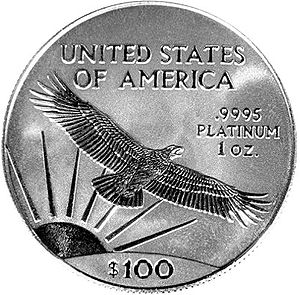- RT @kristinbrianne: Get Talk and Txt Unlimited Cell Svc w/ Free Phone for $10 per month by joining DNA for Free. http://tinyurl.com/yyg5ohn #
- RT: @ChristianPF is giving away an iPod Touch! – RT to enter to win… http://su.pr/2LS3p5 #
- 74 inch armspan and forearms bigger than my biceps. No, I don't button my shirt cuffs. #
- RT @deliverawaydebt Money Hackers Network Carnival #111 – Don't Hassel the Hoff Edition http://bit.ly/9BIAvE #
- @bargainr What would it take to get you to include me in the personal-finance-bloggers list? #
- Working on a Penfed application to transform my worst interest rate into my best. #
- Gave the 1 year old pop rocks for the first time. Big smiles. #
- @Netflix @Wii disc works well and loads fast. Go, go gadget movie! #
Anchor Price Your Salary
- Image by Dalboz17 via Flickr
Conventional wisdom says that, when negotiating your salary or a raise, you should make whatever crazy ninja maneuvers it takes to get the other person to name a number first.
Horse pellets.
Have you ever watched an infomercial? Those masters of of impulse marketing geared towards insomniacs, invalids, and inebriates?
“How much would you pay for this fabulous meat tenderizer/eyelash waxer? $399? $299? No! If you call within the next 73 seconds, we will let you take this home for the low, low price of just $99.99!”
That’s the magic of anchor pricing.
The first number you hear is the number you will base all further numbers on. If you hear a high number, other lower numbers will feel much lower by comparison. The number doesn’t even have to be about money.
There was a study done that had the subjects compare a price to the last two digits of their social security numbers. Those with higher digits found higher prices to be acceptable, while those with lower prices only accepted cheaper prices.
What does an infomercial marketing ploy have to do with your salary?
If you are negotiating your salary and your potential employer gives a lowball offer, every higher counteroffer after that will much, much higher than than it would otherwise. On the other hand, if you start with your “perfect” salary, they amount you will be happy to settle for won’t seem to be nearly as high to the employer. At the same time, you will be less likely to accept a lowball offer if you set your anchor price high.
For example, if you are looking to make $50,000:
The employer offers you $40,000. $60,000 seems too high by comparison, so you counter with $50,000, then compromise and settler for $45,000. Or, you could start at $60,000, making the employer feel that $40,000 is too low, so he counters with $45,000, leaving a compromise at $52,000. That’s a hypothetical $7,000 boost, just for bucking conventional wisdom and taking a cue from the marketing industry.
How have you negotiated your salary?
Carnival Roundup
Live Real, Now was included in two carnivals last week:

Carnival of Personal Finance #348 hosted by Money Qanda
and
Yakezie Carnival hosted by 101 Centavos
Thanks to all of the hosts for including my posts.
Get More Out of Live Real, Now
There are so many ways you can read and interact with this site.
You can subscribe by RSS and get the posts in your favorite news reader. I prefer Google Reader.
You can subscribe by email and get, not only the posts delivered to your inbox, but occasional giveaways and tidbits not available elsewhere.
You can ‘Like’ LRN on Facebook. Facebook gets more use than Google. It can’t hurt to see what you want where you want.
You can follow LRN on Twitter. This comes with some nearly-instant interaction.
You can send me an email, telling me what you liked, what you didn’t like, or what you’d like to see more(or less) of. I promise to reply to any email that isn’t purely spam.
Have a great week!
Carnivals This Week
I seem to be failing frugal parenting. My son spent the entire week telling me how happy he’d be if we could go to the game store so he could spend some of his money. Tying emotions to shopping is badbadbad.
Live Real, Now was included in four carnivals last week:
Carnival of Financial Planning – Edition #224 at AaronHung.com
Yakezie Carnival – Mardi Gras Edition at Young Adult Finances
Canadian Finance Carnival #76 at Canadian Finance Blog
Carnival of Financial Camaraderie – Rain Man Edition at Thirty Six Months
Thanks to all of the hosts for including my posts.
Get More Out of Live Real, Now
There are so many ways you can read and interact with this site.
You can subscribe by RSS and get the posts in your favorite news reader. I prefer Google Reader.
You can subscribe by email and get, not only the posts delivered to your inbox, but occasional giveaways and tidbits not available elsewhere.
You can ‘Like’ LRN on Facebook. Facebook gets more use than Google. It can’t hurt to see what you want where you want.
You can follow LRN on Twitter. This comes with some nearly-instant interaction.
You can send me an email, telling me what you liked, what you didn’t like, or what you’d like to see more(or less) of. I promise to reply to any email that isn’t purely spam.
Have a great week!
Beat the Check

- Image via Wikipedia
Have you ever played a game of “Beat the Check”? Your rent is due tomorrow, but you don’t get paid until Friday, so you write the check today an, on payday, you run to the bank to get your paycheck deposited before it has a chance to clear. To stretch out the time, you write yourself a check from another account to cover the deficit, knowing that will take a few more days to clear. This is called “floating” a check.
Sound familiar?
I think most people who write checks have tried to rush a deposit in before a check clears.
In 2004, the Check 21 act went into effect, which turned the game on its head. This law gave check recipients an option to make a digital copy of a check, slashing processing time. Instead of boxes of checks being transported around the country, the check began getting scanned and instantly transferred, along with all of the encoding necessary to keep the digital checks organized. This dramatically cut the amount of time it took to clear a check. What was once a week was reduced to as little as 48 hours.
Now, as technology improves and banks update their infrastructure to match, the “float” time has been reduced even further. Many banks are using image control systems to instantly convert all incoming checks to digital format. Within a couple of hours, these images can be transmitted to the Federal Reserve, to be transmitted nearly instantly to the issuing bank. If both the issuing and the receiving banks are using modern image control systems, it is impossible to float a check. “Beat the Check” is a thing of the past. It’s like betting on purple at the roulette wheel.
Of course, this doesn’t mean that the funds are instantly available. That would eliminate the banks being able make use of the funds during that time. Don’t expect the banks to make a habit of allowing you the use of your money before the federal regulations demand it.
Saturday Roundup

- Image via Wikipedia
Last weekend, we had 2 birthday parties. In two weeks we are having our biggest party of the year. I’m going to try to get our yard done this weekend, while my wife and a couple of her friends decorate inside the house. October is still nuts at Casa del Myhouse.
Today, I found out that I accidentally made a huge extra payment to my car. $650 too much. I thought I had deleted the auto-payment series from the bank’s site, but I only deleted September’s payment. Hopefully, I can find enough slack in the bills to make up the difference, instead of hitting the emergency fund.
Don’t miss a thing! Please take a moment to subscribe to Live Real, Now by email.
The best posts of the week:
J. Money’s doing a series on side hustles. The latest one is about chicken farming. If I lived in a more reasonable city, I’d have some chickens of my own.
Self-improvement is always good for you, kind of by definition. Here are a few ways to pick up some interesting certifications.
Lifehacker posted on Squaretrade. I can tell you that, without a doubt, I’ll never again get an extended warranty in-store.
